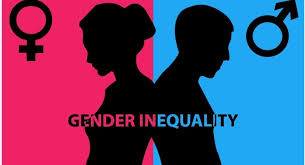Why Gender inequality is a Challenge to the Society

Why Gender inequality is a Challenge to the Society
By Okunlola Christiana Omolola
Gender inequality refers to the unequal allocation of rights, resources, and opportunities based on gender, impacting men, women, and individuals of various gender identities. It appears in different forms, such as the gender wage gap, lack of representation in leadership roles, restricted access to education and healthcare, and the unequal distribution of unpaid caregiving responsibilities. Embedded in social, cultural, and structural power dynamics, gender inequality results in systemic discrimination and represents a significant global challenge with serious repercussions for social justice and personal well-being.
- Individual effects
Mental health: Gender inequality is associated with increased stress levels, decreased self-esteem, and various mental health challenges such as eating disorders and PTSD.
Physical health: It may contribute to worse physical health outcomes due to stress and unequal access to healthcare services.
Education: It establishes obstacles to education, especially for girls, resulting in lower enrollment rates and higher dropout incidences.
Family life: This situation can result in uneven household responsibilities, with women frequently taking on the majority of domestic tasks






